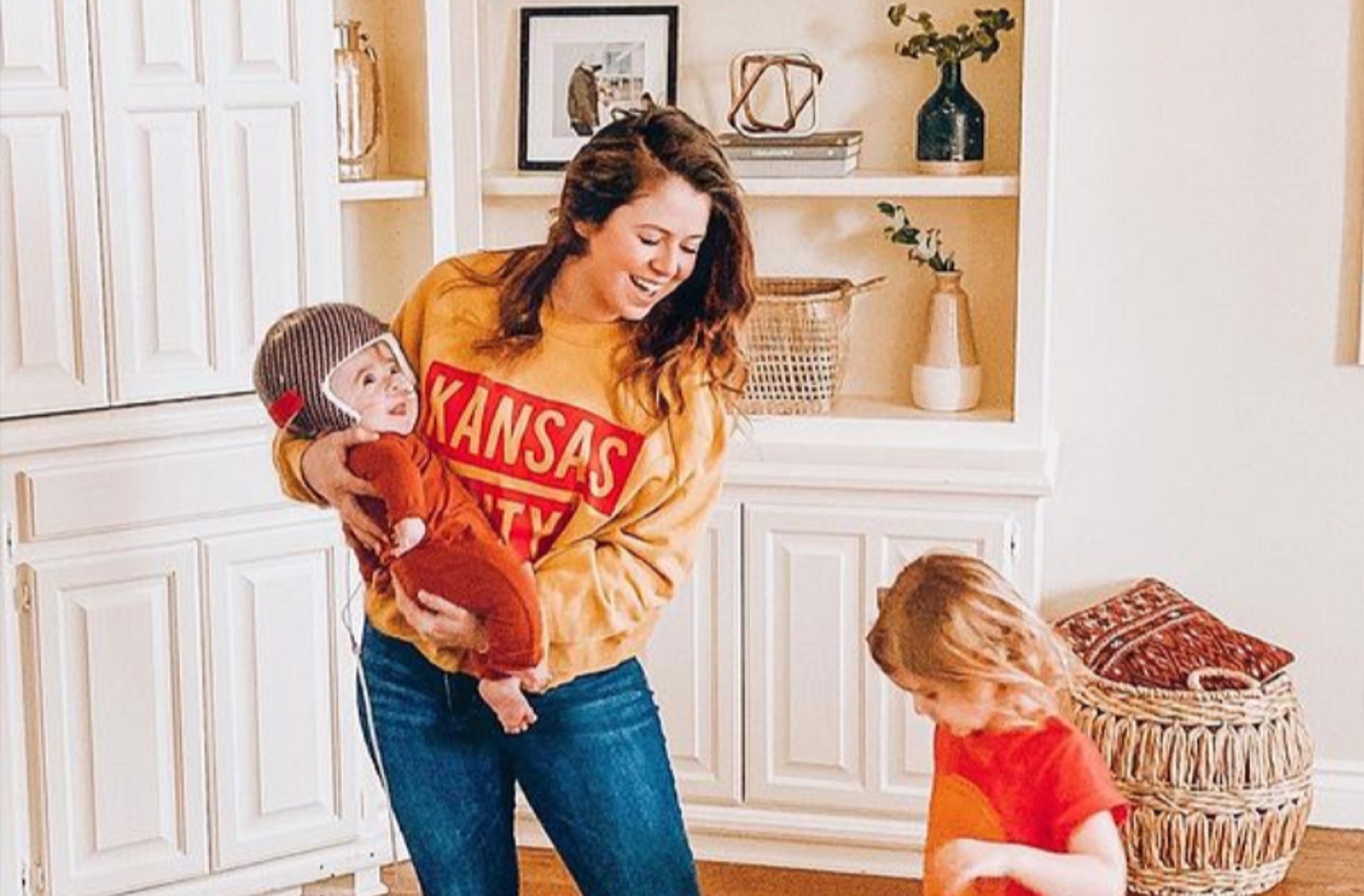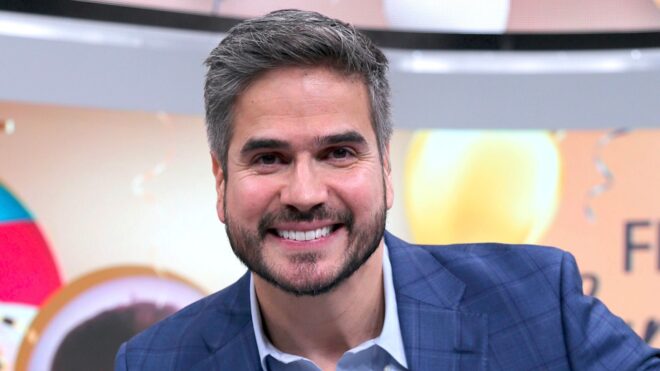
Mom of two Abby Storey is using her experience as the parent of a baby born with what is known as brittle bone disease to spread awareness and destigmatize babies who wear cranial helmets. When Abby was 28 weeks pregnant with her second child, she and husband Jordan found out that their baby has a rare genetic disorder that causes "weak bones."
More from MamásLatinas: 15 Instagram moms who inspire us to love our bodies
For a time, Abby and Jordan even worried that their son, Jackson, would not survive childbirth because the weakness of his chest wall would make it impossible for him to breathe. Now little Jackson is a happy 1-year-old, and while his life isn't quite the same as the average toddler, his mom isn't dwelling on the challenges but is choosing positivity and using her social media influence to inform and inspire others about her son's condition.
The end of Abby's pregnancy was tough.
"It was really touch and go," Abby told Today. "But then he came out and they got him stable and never had to do any type of invasive respiratory support," she said. Still, Jackson was born with multiple broken bones due to his condition, the medical name of which is stage 3 osteogenesis imperfecta.
Jackson was born with "countless" broken bones.
"Some people count [the number of fractures an OI baby has at birth], but we really feel like there is no point. He had tons. Countless," Abby said of Jackson, who was delivered via C-section weighing 6 lbs., 12 oz.
One condition led to another.
Because Jackson had to spend so much time lying flat and still on his back in order to minimize broken bones and fractures, he ended up developing what's known as plagiocephaly, or "flat head syndrome."
They knew a helmet was in his future.
"He has a massive soft spot in the back of his head, so we always knew we'd want to try treating it with a helmet," Abby said, noting that even when Jackson was free of broken bones, it was difficult to reposition him to avoid flat-head syndrome.
But first, he needed to get stronger.
But before Jackson could be fitted for a cranial helmet, his bones needed to be stronger. When he was still a newborn, doctors began treating Jackson with pamidronate infusions. According to Abby, it's a treatment "that slows down bone breakdown, promotes bone growth, and helps with pain management," but it comes with some negative side effects.
The Storeys have tried to make Jackson's life as normal as possible.
Despite all the challenges the Storey family faced in Jackson's first several months of life, they did their best to keep life as normal as possible for their older daughter and to give Jackson some normal experiences as well.
They spend a lot of time in the hospital.
When Jackson goes into the hospital for the "pam" treatments that help strengthen his bones, it's an overnight affair, so the Storeys spend quite a lot of time in the hospital. "We are grateful beyond grateful that Jackson can get his Pam without having to fight for it, and that his team works hard to make sure he gets it safely. But hospital life is not home life," Abby said on Instagram.
Jackson got his helmet when he was 8 months old.
The helmet was specially designed for babies with brittle bone disease. The helmet separates into two sections so that it can be positioned on Jackson's head without increasing the risk of fractures and breaks.
He will need the helmet for at least a few more months.
Jackson's doctors believe that he will need to wear the helmet until he's about 15 months old, so he will likely be in it for at least a few more months. "We want to make sure that any correction we do achieve with the cranial remolding treatment, we maintain as long as possible because with OI, that bony structure is so incredibly sensitive to force and pressure," Jackson's prosthetist, Shannon O'Shea, told Today.
Regression is possible.
"If we are still lying in a back sleeping position constantly, there is potential opportunity of regression, but around the 15 to 18 month age range, the chance of regression goes down," said Shannon.
Abby has no problem answering people's questions.
Abby told Today that she often gets questions about Jackson's conditions and his helmet and that she has to explain to people that it's not primarily for protection, which inevitably leads to a discussion of his health conditions.
Her Instagram account is helping spread awareness.
Abby has a blog and has reached influencer status on Instagram, where she shares photos from her life as a mom, including updates on Jackson's health and treatment. "It's not necessarily an awareness account, but I'm just sharing him in his helmet and sharing us doing normal things," Abby said.
Still, it's helping to normalize babies with helmets.
Still, with over 70,000 followers on Instagram, Abby is certainly doing her part to help normalize and destigmatize babies who need to wear helmets, which isn't all that uncommon. According to the American Academy of Pediatrics, almost half of all infants have some form of cranial plagiocephaly.
Abby appreciates every milestone.
Jackson has come a long way in his first year of life, and Abby isn't taking any of it for granted. Even the fact that she can pick him up and hold him is significant, and she knows it. It's commendable that she can recognize that although his limitations may be frustrating at times, he will progress at his own pace and in his own time.
Staying positive is important.
When asked what advice she would give other moms in a similar position, Abby told Today, "Just take it day by day. I have really enjoyed using it, and it has helped him immensely. And, view it as a positive thing because it is a positive thing," she said about Jackson's helmet.




